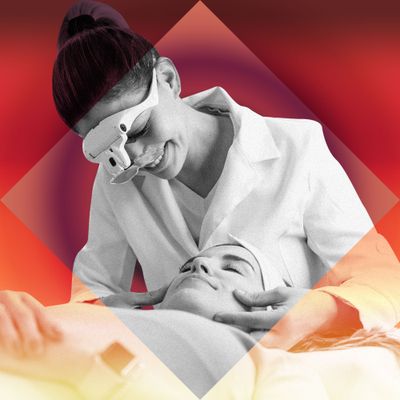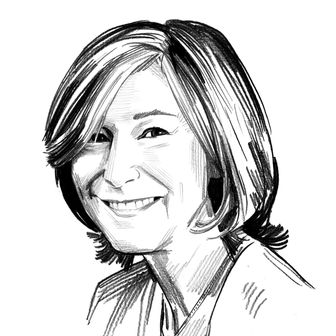
This column first ran in Valerie Monroe’s newsletter, How Not to F*ck Up Your Face, which you can subscribe to on Substack.
Q: How do I find a trustworthy dermatologist? You talk a lot about how helpful one can be, but I find it takes ages to get an appointment. The idea of making appointments with multiple dermatologists to find the right fit seems daunting and time-consuming.
A: Because it can be a useful exercise to walk a mile in someone else’s shoes, to answer your question, I pretended to not already know a barrelful of terrific dermatologists. I made like I was trying to find one who checked all the boxes for me (abundant experience, excellent people skills, robust medical knowledge, etc.) and visited the American Academy of Dermatology website, hitting the “For patients and public” link. From there, I scrolled down to “Find a dermatologist” and entered my Zip Code. After counting around 36 physicians within several blocks of my building (surprised not to find one actually living in my apartment), I stopped looking.
The problem — not really a problem — is an abundance of riches: New York City, a gold mine for people invested in trying to improve your appearance.
So I entered a different Zip Code, one for a county in Omaha, Nebraska, with a not insignificant population about equivalent to our hamlet of readers. Yikes! The closest dermatologist was 38 miles away; two more within 40 miles; and the remainder more than 115 miles.
Clearly, the ability to find a dermatologist who suits your needs depends on where you live. That said, I think the best way to find one is to ask your friends (or, for that matter, a stranger with a healthy-looking complexion) who they like and why. Any candidates’ credentials should include the letters FAAD (Fellow of the American Academy of Dermatology), ABD (American Board of Dermatology), AOBD (American Osteopathic Board of Dermatology), and for you winsome Canucks, RCPSC (Royal College of Physicians and Surgeons of Canada), all of which means they are board certified. After that, the bottom line is experience, skills, and your compatibility.
I see two dermatologists for different reasons: a skin-cancer specialist (I’ve had two basal-cell skin cancers) and a straight-up outstanding medical-type who also does cosmetic stuff for my biannual neurotoxin injections, because I like her injection results and she never tries to upsell. My point being there’s probably no one magical person to fill your every need (wait, am I talking about marriage now?).
Whether you have ten doctors from which to choose or only one, my advice is to give them the opportunity to earn your trust: Ask every question you can think of; say you want to be the doctor’s partner in managing your health, which requires patience; and don’t hesitate to ask for a clearer response if you don’t understand something. You’re correct that the process can be time-consuming, dear reader, and our medical system is in shambles, which doesn’t make it any easier. I wish I could give you more useful advice here. But as with any relationship, an investment of time is necessary if you’re hoping for optimal results.
Originally published on October 1.
More From This Series
- I’m 60 and My Retinol-Based Routine Stopped Working. What Do I Do?
- I Can’t Take My Eyes Off Donatella Versace’s New Look


